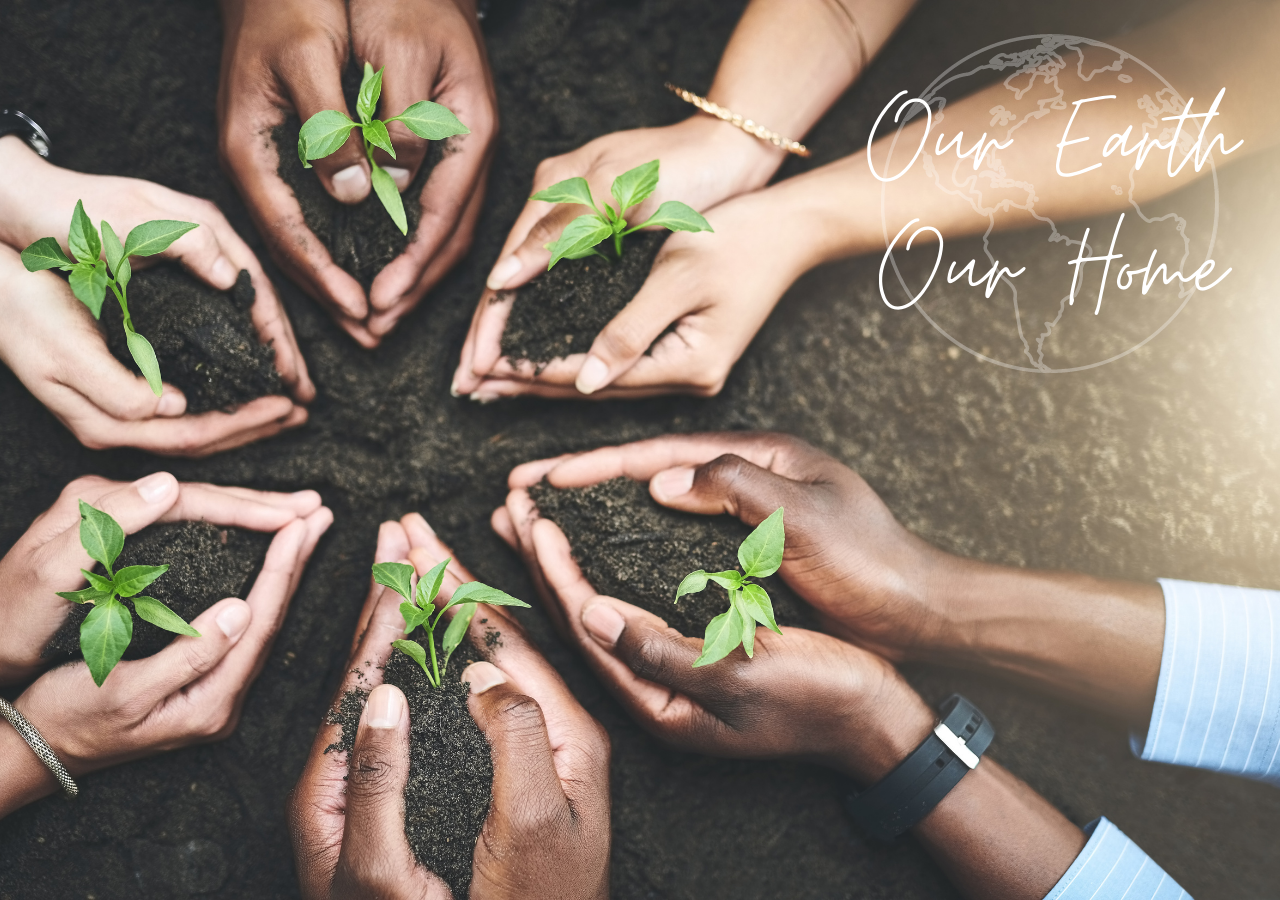“The devastation of the land only comes about through the destitution of its inhabitants and the destitution of its inhabitants only comes about when the desire to amass wealth rules the souls of the governors, when they have doubts about what endures…”
These words, written some 1400 years ago, are a stark reminder today to think carefully about what should endure for future generations, and to guard against the limitless pursuit of wealth that may blind us to this important responsibility.
The notions of responsibility and sustainability, of living without depleting the resources of future generations, have become more widespread in recent decades, as the global effects and consequences of climate change have become more apparent.
Every year since 1974, 5 June has been designated by the United Nations as World Environment Day. This year’s tagline is “Only One Earth,” which was also the slogan of the first world conference on the environment 50 years ago.
Climate change is the greatest challenge that humankind has ever faced. In 2019, approximately 356,000 deaths worldwide were attributable to extreme heat. Since March of this year, people in India and Pakistan have suffered a near continuous heat wave with temperatures reaching nearly 50°C. Not only have people died directly as a result of the extreme heat, but high temperatures have also affected harvests, caused forest fires, and led to power failures. Millions of lives and livelihoods have been impacted via similar examples in other parts of the world.
The consequences of society’s failure to mitigate climate change will be disproportionately suffered by future generations, and especially by the poor and those who live in the developing world. The Sixth Assessment Report of the Intergovernmental Panel on Climate Change notes that 10 per cent of households with the highest per capita emissions contribute approximately 34-45 per cent of global consumption-based greenhouse gas emissions, while the bottom 50 per cent contribute only 13-15 per cent. Thus, while climate change is a common concern of humankind, responsibilities are differentiated. Those in relative positions of privilege have the greatest responsibility to reduce emissions.
The international community has committed to reduce greenhouse gas emissions to limit global warming to no more than 1.5°C. However, action to date has been inadequate and current estimates put us on track for a 3°C warmer world by the end of the century. Each Party to the Paris Agreement is required to establish a “nationally determined contribution,” in essence, a national climate action plan to reduce emissions. The Glasgow Climate Pact in November 2021 asked Parties to strengthen their targets given the gap between the nationally determined contributions and the level of action required to limit the temperature increase to 1.5°C.
Members of the Jamat around the world are taking up the challenge to live more sustainably. Environmental stewardship is an increasing focus of institutional efforts and was a theme of last year’s Global Ismaili CIVIC Day.
The inaugural event succeeded in drawing attention, and contributing towards efforts to better care for the natural environment. Ismailis from East Africa to Northern Europe, and from Australasia to North America took part in projects such as tree planting, flower planting, park and shoreline cleanups, and recycling initiatives, and more.
Many similar initiatives are being planned for the weeks and months ahead to help preserve the resources and natural beauty of the Earth for our children and grandchildren.
The Stockholm Declaration, adopted at a UN Conference in 1972, contained key principles for sound management of the environment. One of these principles is the safeguarding of resources for the benefit of future generations. The concept of environmental stewardship is similarly well-embedded in the ethics of Islam, as illustrated in various passages of the Qur’an, and in Hazrat Ali’s letter quoted above.
As we celebrate World Environment Day, let us commit to individual actions that fulfill our responsibility to care for the Earth and its future inhabitants. From reducing plastics to driving less and choosing more sustainable forms of transport, to recycling and reducing energy consumption, we can all play a role to reduce our impact and preserve the one Earth we have.
—
Learn more about the science of climate change, the environmental work of the Aga Khan Development Network, and what you can do to reduce your greenhouse gas footprint at the.ismaili/environment.








